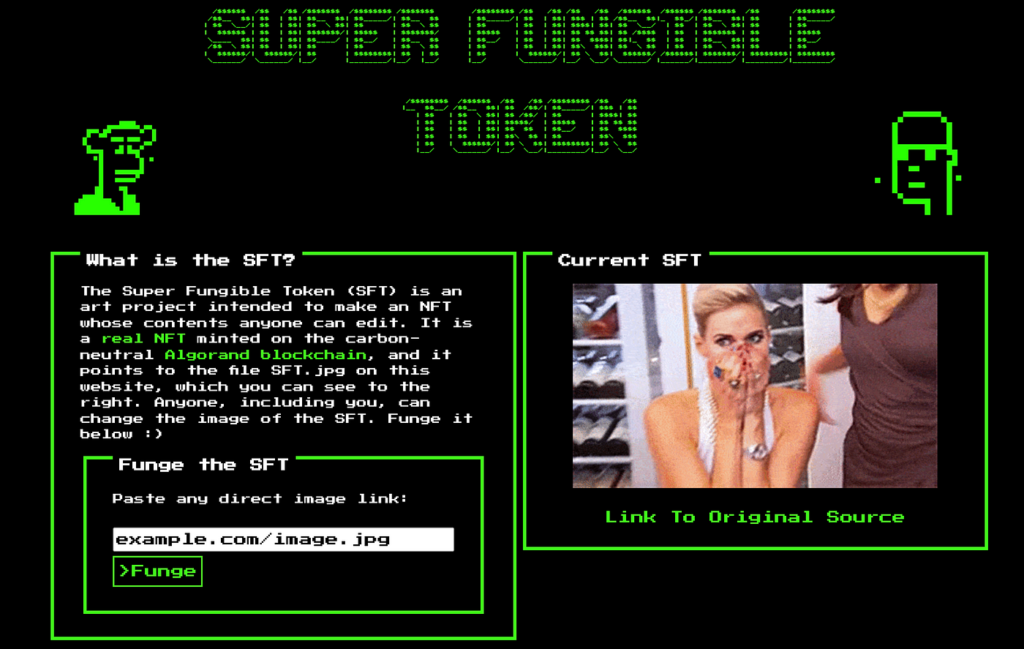-
Sony Group is pioneering a revolutionary concept in the digital realm with its latest patent filing.
-
Its super-fungible tokens offer gamers new control and versatility, unlike traditional in-game purchases limited by specific currencies and restrictions.
-
Blockchain technology ensures that every transaction and asset transfer is recorded in an immutable and verifiable manner.
Sony Group, the titan of the electronics and gaming industry, is pioneering a revolutionary concept in the digital realm with its latest patent filing. This groundbreaking innovation introduces the “Super-Fungible Token,” a novel approach to digital assets in gaming.
By harnessing the power of the Ethereum blockchain, Sony aims to redefine how gamers interact with their virtual possessions, marking a significant shift towards more flexible and personalized gaming experiences.
Sony Group’s Innovative Leap: Transforming Gaming Assets
At the heart of Sony’s innovation lies the super-fungible token, a digital asset that amalgamates various gaming assets into a single, dynamic package. This system allows players to seamlessly switch between assets within a game, enhancing gameplay with unprecedented customization and flexibility.
Stored on the Ethereum blockchain, these tokens ensure secure, verifiable ownership of in-game items, a boon for the digital economy within the gaming industry.
Sony’s patent details reveal a method whereby gamers can combine all their assets into a singular NFT, choosing one at a time for gameplay. This feature is handy in scenarios where players can equip only one item set, such as a weapon or gear, at a time. Swapping assets within the super-fungible token further personalizes the gaming experience, allowing for strategic loadout customization.
Also, Read From Polygon to Avalanche: Sports Illustrated Tickets; Bold Move in NFT Ticketing.
Sony’s introduction of super-fungible tokens will revolutionize how the gaming industry approaches asset ownership and transferability. Its tokens offer gamers new control and versatility, unlike traditional in-game purchases limited by specific currencies and restrictions. These tokens not only allow for actual ownership of combined gaming assets, but they also enable trading on secondary markets.

This system’s standout feature is its ability to extend the usability of a group of assets across different games. Imagine using the same set of assets from a first-person shooter game in another title—a transformative capability that enhances the value and utility of every digital purchase.
This interoperability underscores Sony’s commitment to innovation in the gaming industry, leveraging the Ethereum blockchain to ensure seamless, secure transactions.
Sony’s exploration of digital assets and super-fungible tokens on the blockchain exemplifies a forward-thinking vision for the future of gaming. This initiative enhances in-game mechanics and sets a new standard for asset ownership, exchange, and interoperability in the digital world.
As the gaming industry evolves, introducing super-fungible tokens could herald a new digital literacy and engagement era. Sony is at the forefront of a shift that could redefine gaming economics and player involvement by giving gamers greater control over their digital assets and encouraging a more dynamic interaction with game content.
As the digital landscape evolves, Sony’s strategy to integrate super-fungible tokens into the gaming industry via the Ethereum blockchain is innovative and a game-changer. This venture signifies a profound shift in how game developers and players view and interact with in-game content.
By effectively blending the distinct characteristics of NFTs with the versatility of fungible tokens, Sony is crafting a unique niche for itself and its users in the digital world.
Its tokens have implications that extend beyond asset management and into the fabric of the gaming community as a whole. This technology enables a communal ecosystem where gamers can boast actual ownership of their digital assets and engage in a marketplace that fosters interaction, trade, and a shared gaming experience.
It is a step towards democratizing digital asset ownership, giving players the same rights and privileges in the virtual world as they would have with physical possessions.
Moreover, integrating these tokens into the blockchain underscores Sony’s commitment to security and transparency. Blockchain technology ensures that every transaction and asset transfer is recorded in an immutable and verifiable manner. This instils user confidence in the system and mitigates many risks associated with digital asset ownership, such as fraud and duplication.
Furthermore, its vision reflects a broader trend in the gaming industry towards interoperability and cross-platform functionality. In an era where gamers expect fluid experiences across various devices and platforms, the ability to carry over assets from one game to another is not just a luxury but a necessity.
Also, Read Cristiano Ronaldo NFTs Stands Strong Amid Legal Challenges: Binance Fulfills Promises.
This feature could significantly enhance player engagement, retention, and satisfaction, marking a new phase in the evolution of digital gaming.
In summary, Sony Group’s patent for super-fungible tokens, leveraging the Ethereum blockchain, represents a significant leap forward in the digital transformation of the gaming industry. This innovative approach enhances the gaming experience and paves the way for a more interconnected and versatile digital ecosystem.
As we look to the future, its pioneering efforts could dictate new trends in gaming, and beyond, making the gaming industry an exciting space to watch.
